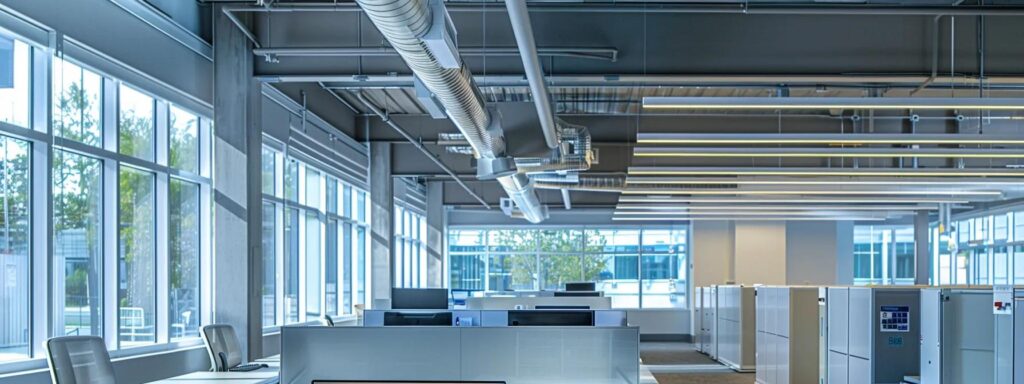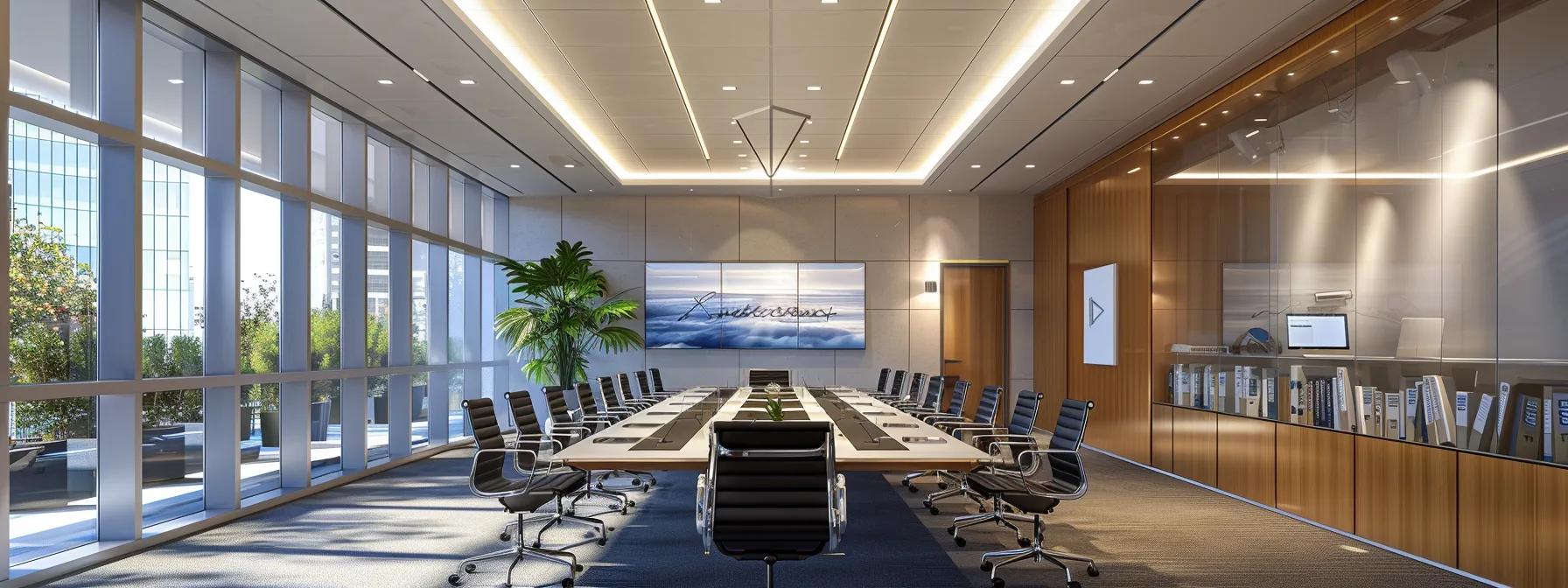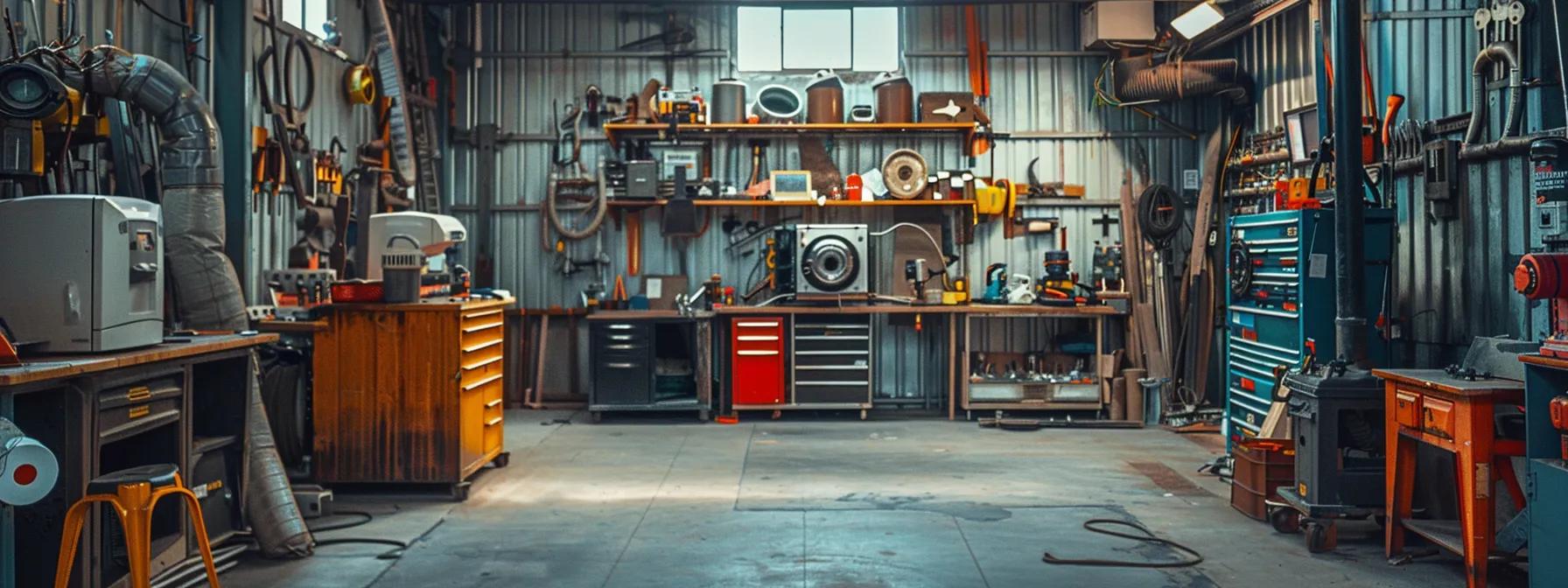Ensuring HVAC Compliance in Savannah GA: A Quick Guide

In the competitive HVAC industry, understanding and complying with local codes and regulations is essential for maintaining safety, quality, and efficiency. Many companies even offer maintenance plans to ensure regular upkeep and performance. Homeowners in Savannah, GA depend on trusted contractors who navigate these regulations to deliver reliable service; for example, clients may request estimate for personalized project evaluations. This article explores Savannah HVAC compliance—from installation standards to permitting processes and inspection requirements—ensuring that HVAC companies like On Time Air provide homeowners with the confidence to make informed decisions regarding their heating and cooling systems, including furnaces.
Understanding Savannah GA HVAC Compliance Codes
Savannah HVAC compliance codes establish the framework for installing, maintaining, and repairing HVAC systems safely and efficiently. These codes protect consumers and professionals by ensuring that standardized procedures are followed.
Differentiating Between State and Savannah HVAC Regulations
Understanding HVAC compliance begins with recognizing the dual authority of state and local regulations. While the Georgia State Energy Code offers broad guidelines, Savannah’s local ordinances address specific climate, zoning, and safety requirements. This dual structure increases system reliability and minimizes safety risks. HVAC companies must continuously reference both sets of regulations to remain compliant and protect homeowner assets.
Identifying Key Local Ordinances Impacting HVAC Installations
Savannah’s local ordinances ensure that HVAC installations do not harm public health, energy efficiency, or urban aesthetics. Regulations cover ductwork placement, venting methods, and noise emissions. For instance, strict insulation standards for ductwork help minimize energy loss, ultimately reducing utility costs and ensuring system efficiency.
Accessing Current Savannah Ga HVAC Compliance Codes Documentation
Up-to-date compliance documentation is crucial for both contractors and homeowners. Current editions of HVAC codes and guidelines are available from local government websites and county offices. Contractors who invest in continuing education and subscribe to code updates can better avoid costly fines and extensive re-inspections.
Recognizing the Role of the International Mechanical Code in Savannah
In addition to local regulations, Savannah integrates provisions from the International Mechanical Code (IMC). The IMC sets widely recognized standards for ventilation, combustion air, and equipment safety. HVAC professionals refer to IMC standards as a benchmark, ensuring that systems meet both local and international expectations.
Staying Updated on Amendments to Savannah HVAC Codes
Local codes are regularly updated to reflect evolving technology, environmental challenges, and safety research. Contractors need to stay informed by subscribing to newsletters, attending seminars, and engaging with local trade groups. Homeowners should ask about recent code changes to ensure their HVAC systems incorporate the latest safety and efficiency standards.
Essential Permitting Processes for HVAC Work in Savannah
Before beginning any HVAC installation or major repair work, obtaining proper permits is mandatory. The permitting process in Savannah is designed to protect homeowners and confirm that work meets established codes.

Determining When an HVAC Permit Is Required in Savannah
Permits in Savannah are required when significant modifications or new installations could impact building safety or energy performance. This includes new installations, major system replacements, and extensive upgrades. The permit serves as documentation that all work complies with local codes. Homeowners are advised to hire licensed HVAC contractors who understand when a permit is necessary.
Step-by-Step Guide to Applying for a Savannah HVAC Permit
The application process for an HVAC permit in Savannah is straightforward yet thorough. The contractor submits a detailed project plan that outlines equipment specifications, installation methods, and safety protocols. This plan is reviewed by the city’s building department. After approval, the work begins with periodic inspections ensuring adherence to the plan. Finally, a Certificate of Occupancy confirms that the installation meets all requirements. This systematic process reduces delays and enhances transparency.
Understanding Homeowner Permit Responsibilities in Savannah
Although HVAC contractors typically manage permit applications, homeowners also share responsibility. They must verify that all documentation is in order before work starts, pay any associated fees, and retain records of permits and inspections. This proactive involvement helps prevent legal issues and ensures that work is properly recorded for future needs.
Navigating Commercial HVAC Permitting in Savannah GA
Commercial HVAC installations undergo more rigorous review than residential projects. Commercial systems face additional scrutiny due to higher occupancy and energy demands. These projects require energy efficiency assessments and specialized safety inspections. Close coordination with local authorities ensures that commercial installations meet both environmental and operational standards.
Typical Timelines for HVAC Permit Approval in Savannah
The timeline for permit approval depends on the project scope and the permitting office’s workload. Residential projects are generally approved within one to two weeks, while larger commercial projects may take longer. Early planning and clear communication with homeowners can expedite the process and minimize project disruptions.
Meeting HVAC Inspection Requirements in Savannah Georgia
Regular HVAC inspections play an essential role in ensuring that systems adhere to approved standards. These inspections add a layer of quality control and safety throughout the installation process.
Scheduling Required HVAC Inspections With Savannah Officials
Once work begins, HVAC contractors must coordinate with local building officials to schedule inspections at critical project milestones. These scheduled inspections ensure that every phase of the installation meets the established codes, thereby preventing future operational issues and ensuring homeowner safety.
Preparing Your HVAC System for a Savannah Inspection
Preparation is key to a successful HVAC inspection. Contractors should verify that all components are correctly installed according to the approved plan. Pre-inspections by technicians can identify discrepancies before official inspectors arrive, reducing the risk of failure and revision requests.
Common Issues Leading to Failed HVAC Inspections in Savannah
Frequently encountered issues during inspections include non-compliant ductwork, improper equipment sizing, inadequate ventilation, and incorrect refrigerant handling. Addressing these potential issues through proper planning and skilled workmanship can ensure that installations pass their first official review.
Understanding the Certificate of Occupancy Post-HVAC Inspection
After successful inspections, a Certificate of Occupancy is issued, confirming that the HVAC installation meets all safety and compliance standards. This document not only gives homeowners peace of mind but also serves as an important record for warranty, insurance, and future property transactions.
Rectifying Violations Found During Savannah HVAC Inspections
If violations occur during an inspection, the contractor must promptly develop and implement a remediation plan. Corrective actions are taken to address identified deficiencies, followed by re-inspections until compliance is achieved. Effective communication between the contractor and homeowner throughout this process is critical to minimizing delays.
Adhering to Savannah GA HVAC Installation and Equipment Standards
Savannah’s HVAC installation standards cover a broad spectrum of technical requirements designed to ensure system efficiency and safety. These standards range from equipment sizing to installation methods.

Proper Sizing and Selection of HVAC Equipment Per Savannah Codes
Correct equipment sizing is essential for optimal HVAC performance. Technicians use Manual J and Manual D calculations to determine the proper system capacity. Oversized or undersized units can lead to increased energy consumption and early system wear. By selecting appropriately sized equipment, contractors can provide energy savings and improved system longevity.
Savannah Requirements for Ductwork Design and Installation
Ductwork must be designed to ensure efficient airflow and indoor air quality. Local codes require that ducts be insulated, sealed, and positioned away from potential heat sources. This design approach, which considers static pressure and airflow distribution, minimizes energy loss and enhances occupant comfort by preventing temperature inconsistencies.
Ventilation and Combustion Air Standards in Savannah HVAC Compliance
Proper ventilation is crucial for indoor air quality and system safety. Savannah codes mandate adequate provisions for fresh air intake and exhaust in every HVAC installation. This requirement ensures safe operation of combustion appliances by reducing the risk of carbon monoxide accumulation and maintaining effective overall operation.
Refrigerant Handling and EPA Certification for Savannah Technicians
Due to environmental and health hazards, refrigerant handling is strictly regulated. Only EPA-certified technicians are allowed to manage refrigerants during installation, maintenance, or repair. Adherence to these protocols prevents chemical releases and promotes environmental sustainability while ensuring system efficiency.
Electrical Wiring and Connection Rules for HVAC in Savannah
Electrical safety is a critical aspect of HVAC systems. In Savannah, wiring must comply with the National Electrical Code (NEC) along with local amendments. Mandatory practices such as proper grounding and overcurrent protection help prevent hazards like short circuits and electrical fires, ensuring a long and safe system operation.
Energy Efficiency and Environmental Considerations in Savannah HVAC Codes
Energy efficiency is a central focus in Savannah’s modern HVAC regulations, aiming to benefit both homeowners and the environment.
Meeting Minimum Energy Efficiency Ratings (SEER, HSPF, AFUE) in Savannah
New HVAC systems in Savannah must meet minimum efficiency benchmarks such as SEER, HSPF, and AFUE. These ratings not only reduce energy consumption and utility bills but also support environmental sustainability. Homeowners see tangible benefits in reduced operating costs and improved system longevity.
Georgia State Energy Code Applicability in Savannah
The Georgia State Energy Code sets baseline efficiency standards that bolster local regulations. This code helps contractors design systems that maximize energy conservation, leading to enhanced indoor comfort and lower energy expenses for homeowners. Compliance with the state code is key to sustainable, cost-effective practices.
Incentives and Rebates for High-Efficiency HVAC Systems in Savannah
Local utilities and state agencies often offer financial incentives for installing high-efficiency HVAC systems. These incentives, which may include tax credits, rebates, or discounted financing options, help offset installation costs and encourage the adoption of environmentally friendly technologies.
Impact of Savannah’s Clean Energy Plan on HVAC Choices
Savannah’s clean energy initiatives promote renewable energy sources and sustainable practices in HVAC installations. This plan supports electrification, smart thermostat integration, and the use of eco-friendly refrigerants. Homeowners who choose these technologies not only comply with regulations but also contribute to reducing the city’s overall carbon footprint.
Proper Disposal and Replacement Guidelines for Old HVAC Units
When upgrading HVAC systems, proper disposal of old equipment is required by local codes to protect the environment. Contractors must follow strict guidelines for recycling and disposing of outdated systems, ensuring that refrigerants and electronic components are managed responsibly. This process minimizes environmental contamination and supports a sustainable, circular economy.
Consequences and Enforcement of Savannah HVAC Compliance Codes
Non-compliance with HVAC codes in Savannah can result in penalties, legal challenges, and heightened safety risks. Local officials enforce these standards rigorously to protect public welfare.

Penalties for Non-Compliance With Savannah Ga HVAC Compliance Codes
Failure to meet Savannah’s HVAC standards can result in fines, forced modifications, or legal action. Increasing fines for repeated violations encourage adherence and underline the importance of hiring licensed professionals familiar with local regulations.
The Role of Savannah Code Enforcement in HVAC Systems
Local code enforcement teams conduct routine inspections and occasional surprise checks to ensure installations comply with established standards. Cooperation with these teams enhances contractor reputations and helps avoid costly delays and rework.
Addressing Complaints and Violations Related to HVAC Work
When issues arise—whether through neighbor complaints or inspector findings—prompt resolution is essential. The formal complaint process includes a detailed review and corrective actions, with both contractors and homeowners working together to resolve deficiencies efficiently.
Importance of Licensed HVAC Contractors for Code Adherence
Licensed HVAC contractors receive extensive training and certification, ensuring that their work complies with both state and local codes. Hiring experienced professionals, such as those at On Time Air, is crucial for meeting compliance standards and avoiding costly errors.
Legal Implications of Unpermitted HVAC Installations in Savannah
Performing HVAC work without a permit can jeopardize occupant safety and lead to significant legal consequences. Unauthorized modifications may result in litigation, loss of insurance coverage, and complications during property resale. Strict adherence to the permitting process is essential to avoid these risks.
Table: Comparison of Key HVAC Specifications and Compliance Benefits
Before proceeding, the table below summarizes key HVAC specifications and their benefits for homeowners:
The table above highlights how these specifications support HVAC compliance in Savannah, helping homeowners achieve safe, efficient, and cost-effective systems.
Frequently Asked Questions
Q: What happens if my HVAC installation does not comply with Savannah codes? A: Non-compliant installations can result in fines, forced corrections, and legal complications. It is essential to hire a licensed contractor to ensure adherence to all applicable codes.
Q: How do I know if my HVAC contractor follows the latest codes? A: A reputable contractor will provide proof of licensing, ongoing certification, and details of continuous education, ensuring they stay up-to-date with local and state regulatory changes.
Q: Are there incentives for installing high-efficiency HVAC systems in Savannah? A: Yes, homeowners may benefit from rebates and tax incentives for installing units that meet or exceed efficiency standards such as SEER, HSPF, and AFUE.
Q: How often should my HVAC system be inspected for compliance? A: Regular inspections are recommended at least annually, and after significant modifications, to ensure that the system consistently meets local standards.
Q: What are the risks of unpermitted HVAC work in Savannah? A: Unpermitted work can trigger legal disputes, issues with insurance claims, increased safety risks, and difficulties during property resale.
Q: Can I upgrade my existing HVAC system to meet current codes without a full replacement? A: In many cases, targeted upgrades like improved ductwork, advanced controls, or better insulation can bring an older system into compliance, subject to inspection approval.
Q: What role do local ordinances play compared to state-level HVAC standards? A: Local ordinances in Savannah complement state standards by addressing regional environmental and safety concerns, ensuring comprehensive compliance on both levels.
Q: Is the International Mechanical Code (IMC) mandatory for installations in Savannah? A: While Savannah uses its local codes, the IMC provides a foundational framework for ventilation, safety, and efficiency, which is often integrated into local regulations.
Q: How does proper refrigerant handling benefit me as a homeowner? A: Proper refrigerant handling minimizes environmental impact, extends system life, and ensures cost-efficient operation, all in line with EPA standards.

Final Thoughts
Savannah HVAC compliance integrates state and local codes, energy efficiency mandates, and rigorous inspection standards to ensure public safety and system reliability. Homeowners benefit from the expertise of professionals like On Time Air, who guide every step—from permit applications to final inspections. As environmental standards and energy codes evolve, staying informed is essential. Investing in compliant HVAC systems not only guarantees improved performance and lower utility costs but also enhances long-term safety.